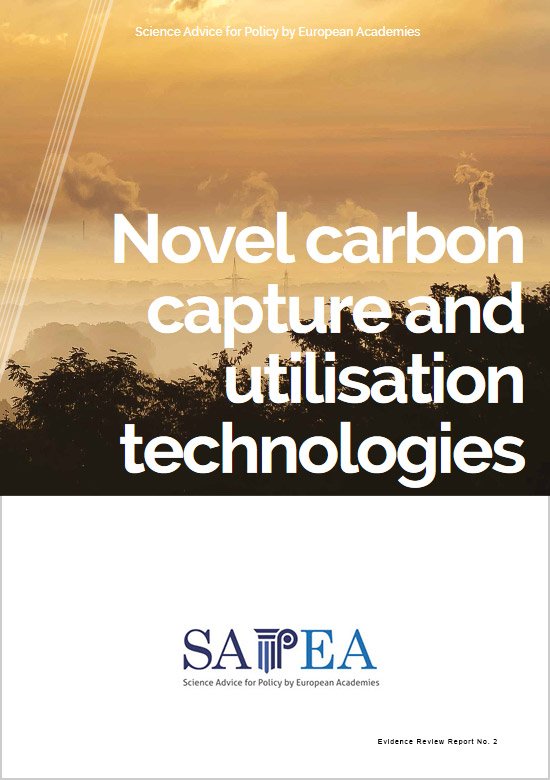12 Juil Novel carbon capture and utilisation technologies: research and climate aspects
CCU technologies extract CO2 from concentrated sources or directly from the air, and use it as a raw material. Key technological challenges must be tackled in collecting and purifying CO2 from different sources, in synthesising green-hydrogen, and in converting CO2 to fuels and chemicals.
SAPEA has published its second Evidence Review Report titled Novel Carbon Capture and Utilisation Technologies: research and climate aspects. The report explores whether Carbon Capture and Utilisation (CCU) technologies have the potential to contribute significantly to mitigating the effects of climate change.
As an integral part of the Scientific Advice Mechanism (SAM), SAPEA was asked to produce this Evidence Review Report to inform the Scientific Opinion of the European Commission Group of Chief Scientific Advisors in response to a request from Commissioner Miguel Arias Cañete.
CCU technologies aim to extract carbon dioxide from either concentrated sources or directly from ambient air, and then use it as a raw material for carbon-containing products, such as fuels, chemical products, and building materials.
The report identifies a need for innovation in policy domains, and from systemic and technology perspectives. Some main recommendations in these areas are as follows:
- Measures, regulations and incentives should be used to examine the energy system (including CCU) in a holistic, integrated, coordinated and transparent manner.
- A systemic approach is required when evaluating the energy system and CCU systems, and further development is needed in stakeholder awareness and consistency of definitions.
- Key technological challenges must be tackled in the areas of collection and purification of CO2 from different sources, synthesis of green-hydrogen and technologies for carbon dioxide conversion to fuels and chemicals.
To produce the CCU Evidence Review Report, SAPEA brought together experts from across Europe, via the European Academy Networks. The experts formed a working group which was chaired by Professor Robert Schlögl (Fritz-Haber-Institute, Germany), and Professor Marco Mazzotti (ETH Zürich, Switzerland).
Professor Bernard Charpentier 2018 Chair of the SAPEA board said:
“SAPEA is delighted to present its second Evidence Review report. This report is the result of hard work and commitment from our working group, who have shown dedication to explaining what current knowledge can tell us about potential future developments in the field of CO2 management, energy and climate action. This topic is another example of successful collaboration with the Group of Chief Scientific Advisors and we are pleased to have had the opportunity to contribute to policy making in this important area.”





Sorry, the comment form is closed at this time.